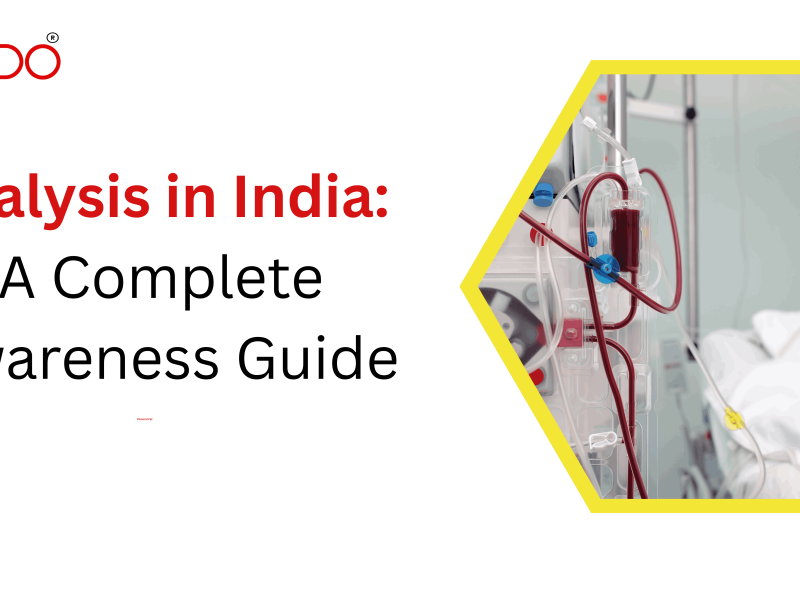Employee health and safety are no longer optional—they are strategic priorities that define an organization’s ability to perform, retain talent, and comply with legal requirements. The Occupational Safety, Health, and Working Conditions (OSHWC) Code, 2020, has redefined workplace health regulations in India by mandating a stronger focus on employee well-being. One critical element of this compliance is ensuring regular blood tests for employees to detect occupational risks, chronic illnesses, and lifestyle-related health conditions early.
In this blog, we will explore the importance of employee blood tests under the Occupational Safety, Health and Working Conditions (OSHWC) Code 2020, highlighting why they are essential for workplace health and compliance. We will also look at the key blood tests that are mandated or recommended, along with industry-specific testing requirements that organizations must be aware of. Further, we will discuss the wide-ranging benefits these tests offer for both employers and employees, from improved safety to enhanced productivity. Finally, we will explain how VMEDO can support organizations with hassle-free compliance through reliable and comprehensive employee health check-up services.
Why Blood Tests for Employees Matter under OSHWC 2020
The OSHWC Code emphasizes regular health examinations to protect employees from workplace hazards and to promote long-term well-being. Blood tests play a central role in these examinations because:
- Early Detection of Occupational Hazards – Many industries expose workers to chemicals, heavy metals, dust, or toxic substances. Blood tests detect lead poisoning, chemical exposure, and related abnormalities before they cause severe harm.
- Monitoring Chronic Diseases – With rising cases of diabetes, hypertension, and cholesterol issues, blood tests help track health conditions that can silently affect productivity and safety.
- Fitness to Work – Pre-employment and periodic blood tests ensure employees are medically fit for the nature of their work, reducing risks of accidents or absenteeism.
- Legal Compliance – Under OSHWC 2020, employers are obligated to conduct regular medical examinations, and blood tests are integral to fulfilling these requirements.
- Building Trust and Employer Branding – Organizations that prioritize preventive healthcare send a strong message that they value their workforce, which improves retention and employee satisfaction.
Types of Blood Tests for Employees as per OSHWC 2020
While the exact tests may vary depending on the industry and exposure risks, here are the most common and essential blood tests for employees:
1. Complete Blood Count (CBC)
- Evaluates overall health and detects infections, anemia, and other disorders.
- Critical for employees exposed to toxic environments where immunity may weaken.
2. Blood Sugar (Fasting & Random)
- Detects diabetes and pre-diabetic conditions.
- Important for sedentary employees (e.g., IT) and high-stress jobs where diabetes risk is higher
3. Lipid Profile
- Measures cholesterol and triglycerides.
- Helps prevent cardiovascular risks in mid to senior-level employees.
4. Liver Function Tests (LFT)
- Detects alcohol/drug toxicity, hepatitis, or chemical exposure.
- Essential in industries where employees may handle solvents or hazardous chemicals.
5. Kidney Function Tests (KFT)
- Evaluates renal health and toxin exposure.
- Important for workers exposed to dyes, heavy metals, and solvents.
6. Heavy Metal Tests (Lead, Mercury, Arsenic, Cadmium)
- Identifies toxic accumulation from industrial exposure.
- Mandatory in factories dealing with paints, batteries, welding, and smelting.
7. Thyroid Profile (T3, T4, TSH)
- Helps detect hormonal imbalances.
- Important in both sedentary jobs (stress-related disorders) and industrial workers.
8. Hepatitis B & C, HIV Screening
- Ensures workplace safety, particularly in healthcare and food industries.
- Helps protect co-workers and the public.
9. Blood Grouping
- Basic but vital for emergencies, accidents, and medical records.
Industry-Specific Blood Test Requirements
Different sectors require customized blood testing due to varying risk exposures.
1. Manufacturing & Heavy Industries
- Heavy metal screening
- CBC, LFT, KFT
- Hepatitis and occupational hazard-related tests
2. IT & Corporate Offices
- Blood sugar, lipid profile
- Thyroid and vitamin deficiency tests
- Stress and lifestyle disorder screening
3. Healthcare & Pharma
- Hepatitis, HIV, and infection screenings
- CBC and immunity-related tests
- Liver and kidney monitoring due to chemical/drug exposure
4. Construction & Mining
- CBC, heavy metal exposure
- Kidney and lung-related monitoring
- Alcohol/drug screening
5. Food & Hospitality
- Hepatitis, typhoid, HIV screening
- CBC and liver function
- Routine health monitoring to ensure food safety
Benefits of Employee Blood Tests for Employees
Implementing regular blood tests goes beyond compliance—it drives measurable business benefits:
- Reduced Absenteeism – Early detection of diseases minimizes sick leave.
- Higher Productivity – Healthy employees deliver better performance.
- Cost Savings – Preventive care reduces long-term medical costs and insurance claims.
- Safety at Work – Prevents accidents due to unfit employees operating machinery.
- Compliance Confidence – Ensures your company avoids penalties under OSHWC 2020.
- Employee Loyalty – Builds trust as employees see genuine care for their well-being.
How Often Should Employers Conduct Blood Tests?
As per OSHWC 2020:
- Pre-employment: Mandatory for all employees before joining.
- Periodic/Annual: At least once a year, more frequently for high-risk industries.
- Post-Exposure/Incident: Immediately after any hazardous exposure or accident.
Challenges Employers Face in Conducting Blood Tests
- Coordinating large-scale employee checkups
- Ensuring compliance across multiple sites
- Maintaining medical records securely
- Minimizing disruption to business operations
How VMEDO Supports Employers in Employee Blood Testing
At VMEDO, we simplify workplace health compliance by offering:
- End-to-End Health Checkup Camps at your workplace
- Customized Blood Test Packages based on industry risks
- Certified Doctors & Technicians for accurate testing
- Digital Health Records for easy compliance documentation
- Pan-India Coverage ensuring uniform standards across offices and factories
We ensure your organization stays compliant, healthy, and productive while you focus on your business growth.
FAQs: Blood Tests for Employees as per OSHWC 2020
Q1. Are blood tests mandatory for all employees under OSHWC 2020?
Yes, medical examinations, including blood tests, are mandatory for both pre-employment and periodic health checks, especially in notified industries.
Q2. How frequently should blood tests be conducted?
At least once a year, but high-risk industries like chemical, construction, and mining may require more frequent monitoring.
Q3. Who bears the cost of employee blood tests?
Employers are responsible for covering all costs of mandatory health tests as per OSHWC 2020.
Q4. Can employees refuse to undergo blood tests?
Since these tests are linked to workplace safety and compliance, refusal may affect their eligibility to work in certain roles.
Q5. How does VMEDO ensure data privacy?
VMEDO provides secure, confidential digital health records accessible only to authorized stakeholders.
Q6. What happens if a company does not comply with OSHWC 2020 medical test norms?
Non-compliance may result in penalties, legal action, or even shutdown notices from regulatory bodies.
Blood tests for employees are not just a statutory requirement under the OSHWC Code, 2020—they are a vital tool for ensuring a safe, productive, and future-ready workforce. By conducting regular medical screenings, employers can safeguard their business, comply with regulations, and build a healthier work culture.
With VMEDO’s expertise in occupational health services, organizations can eliminate the hassle of compliance, ensure accurate testing, and demonstrate their commitment to employee well-being.



